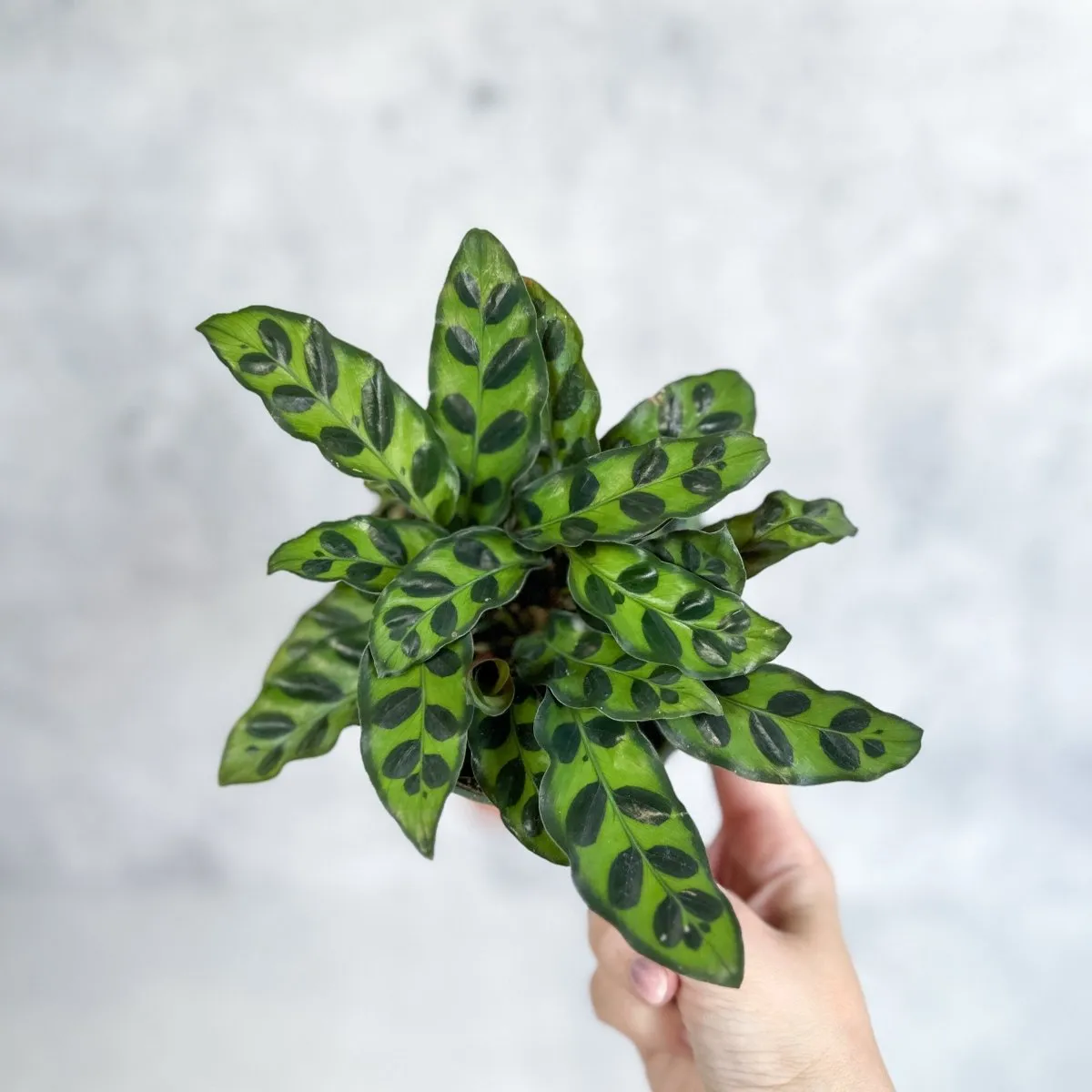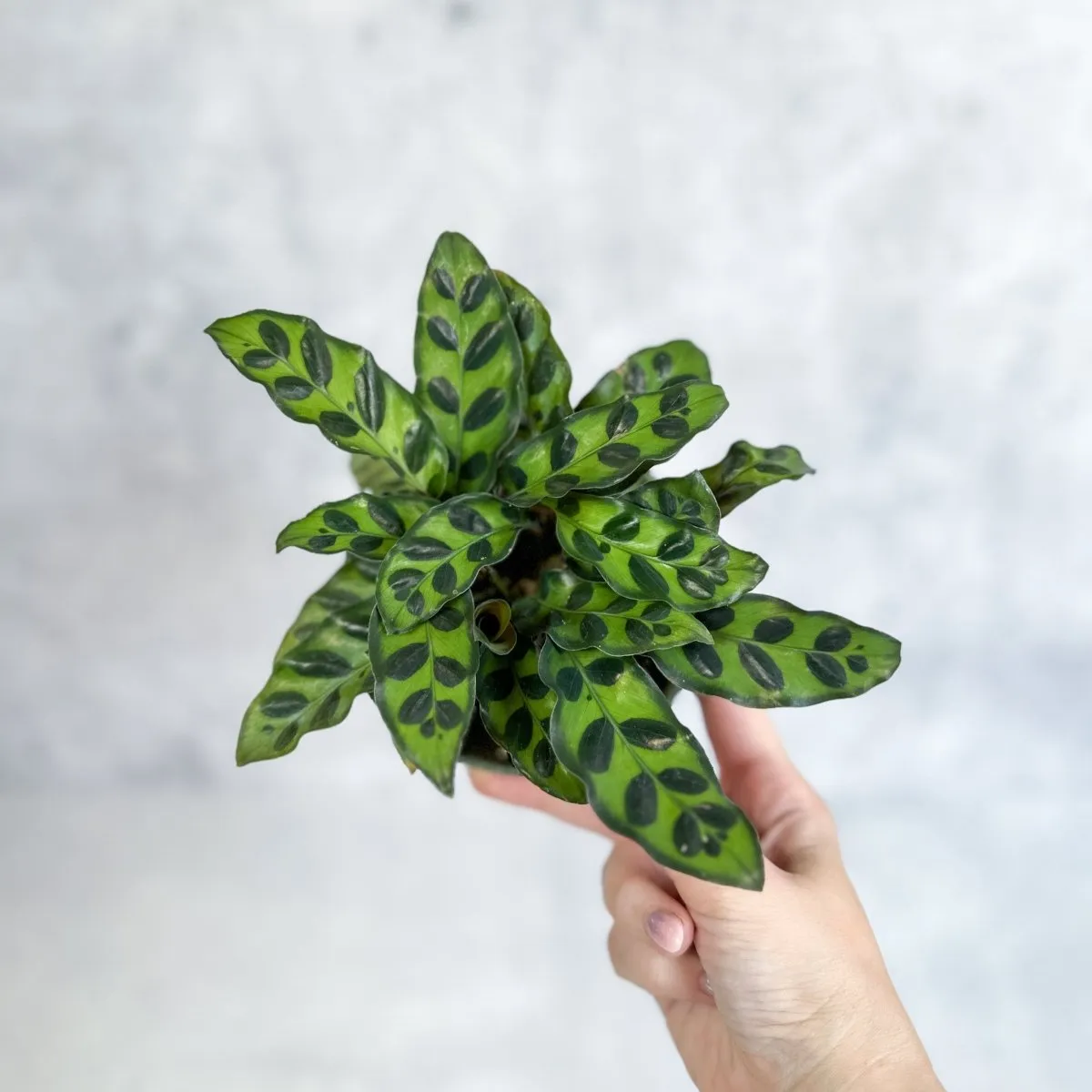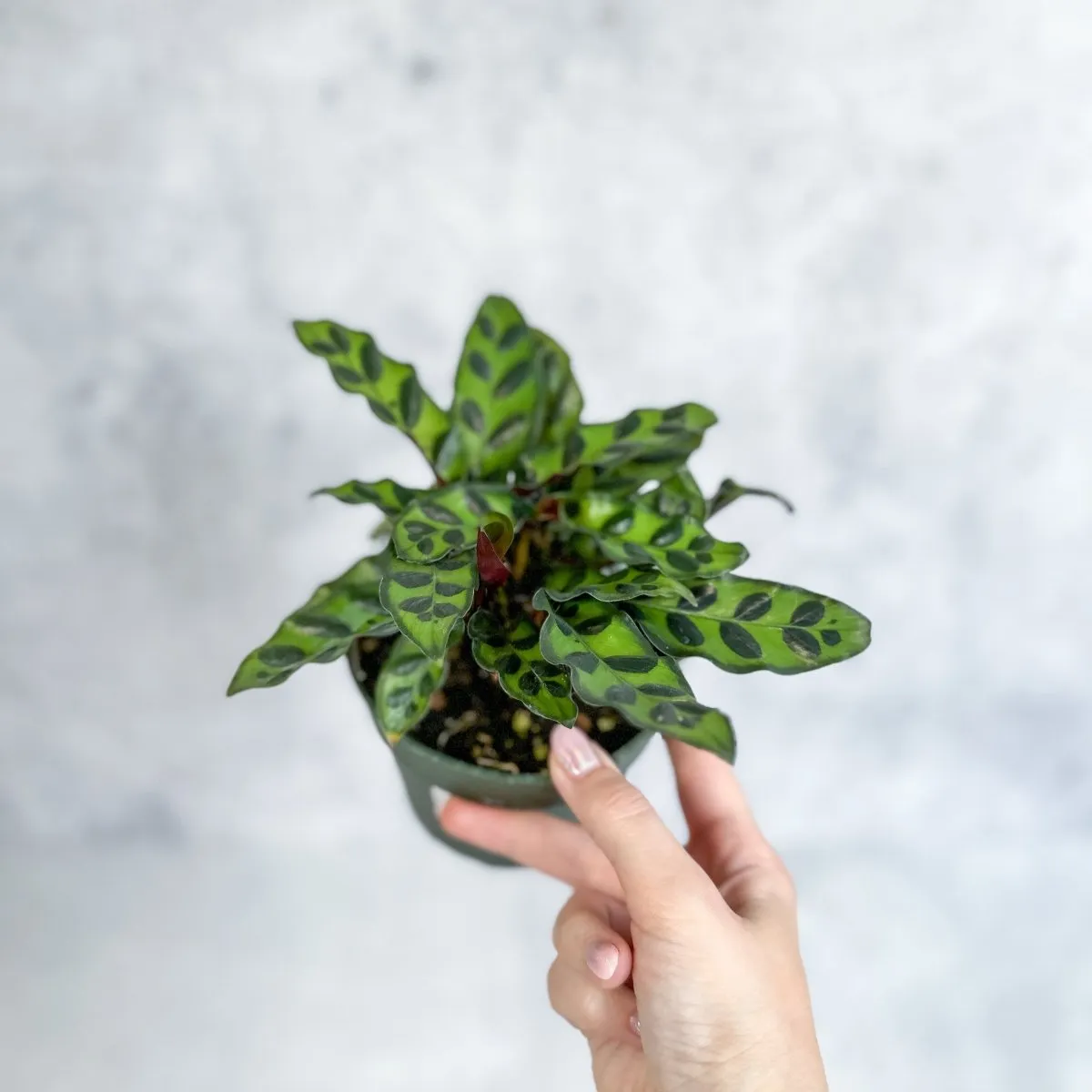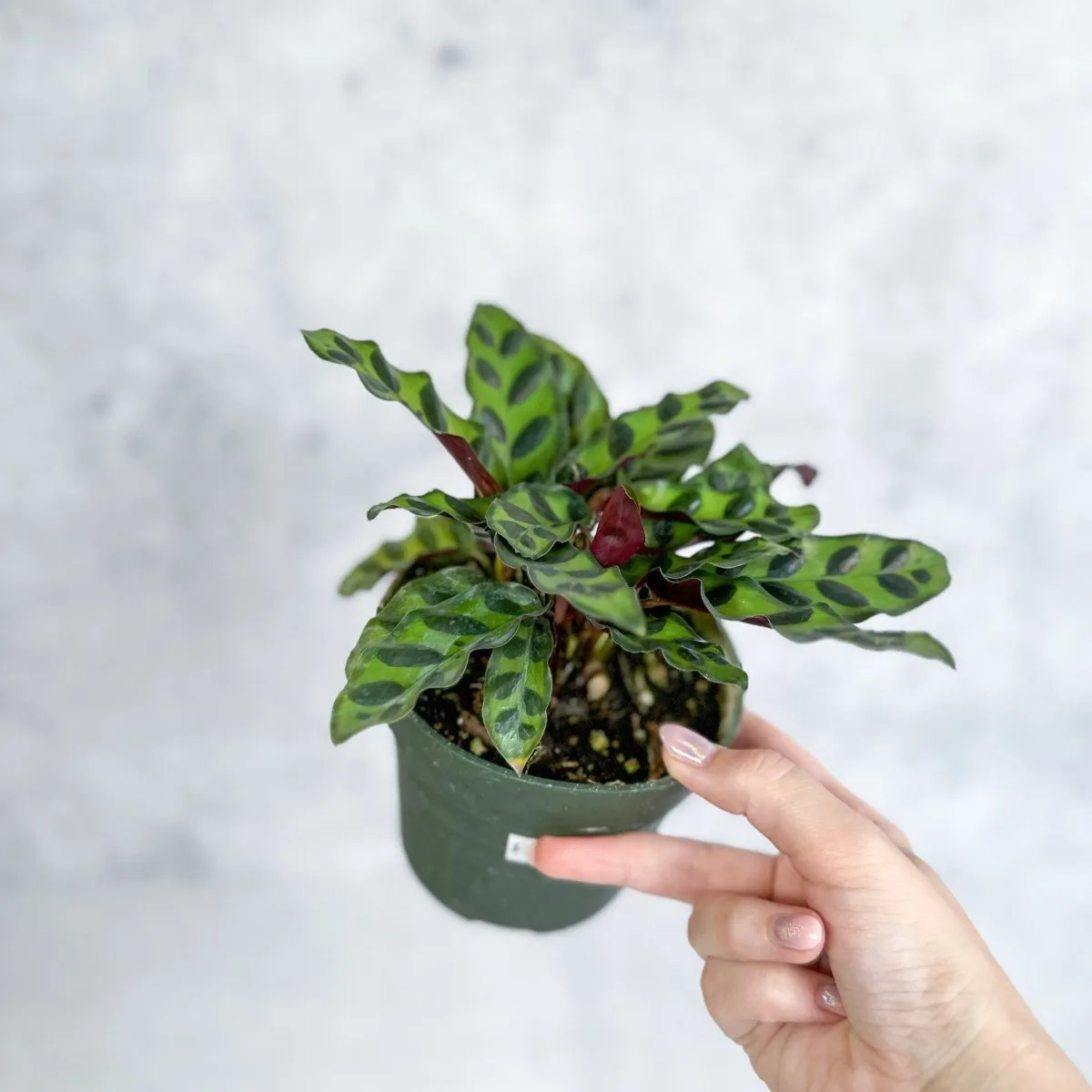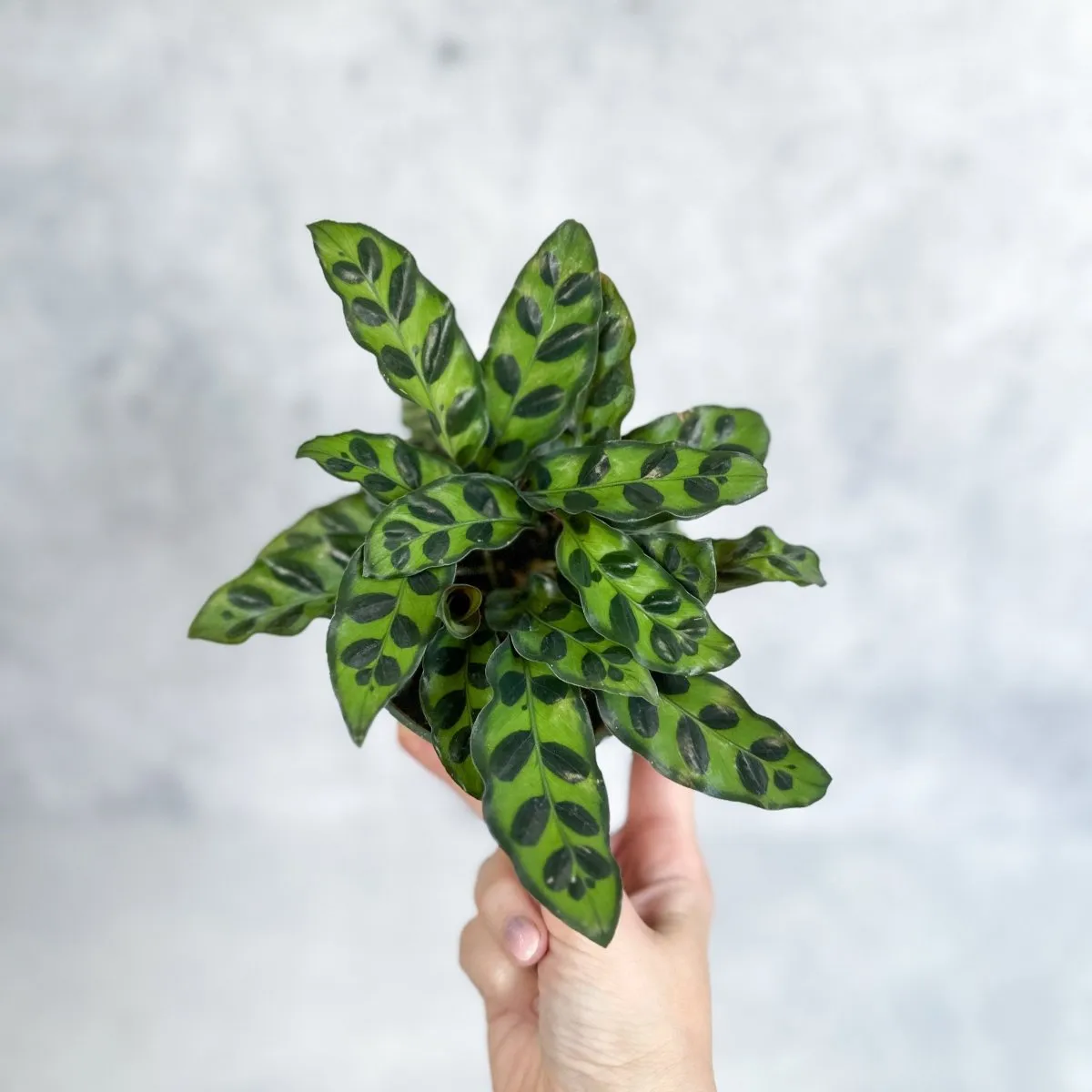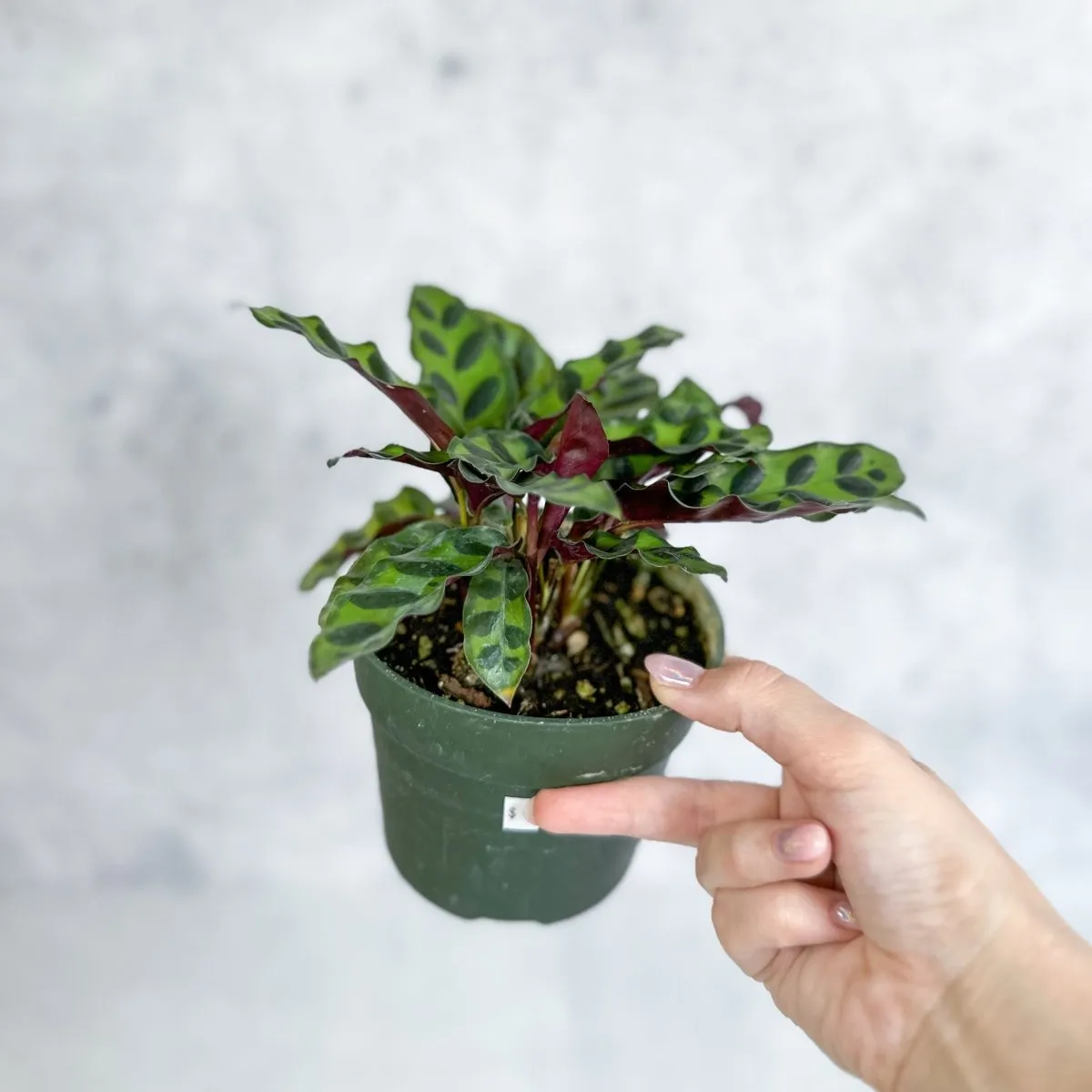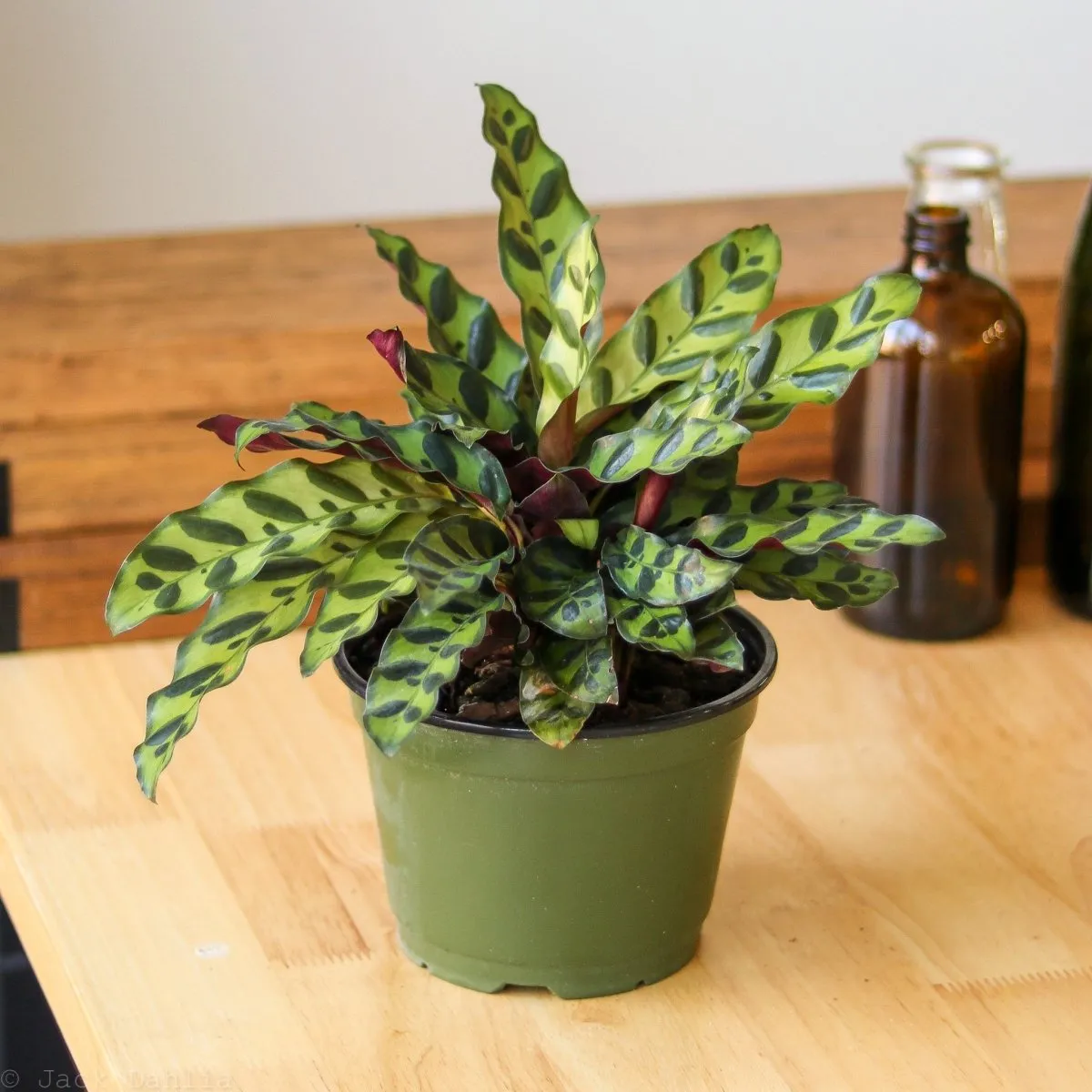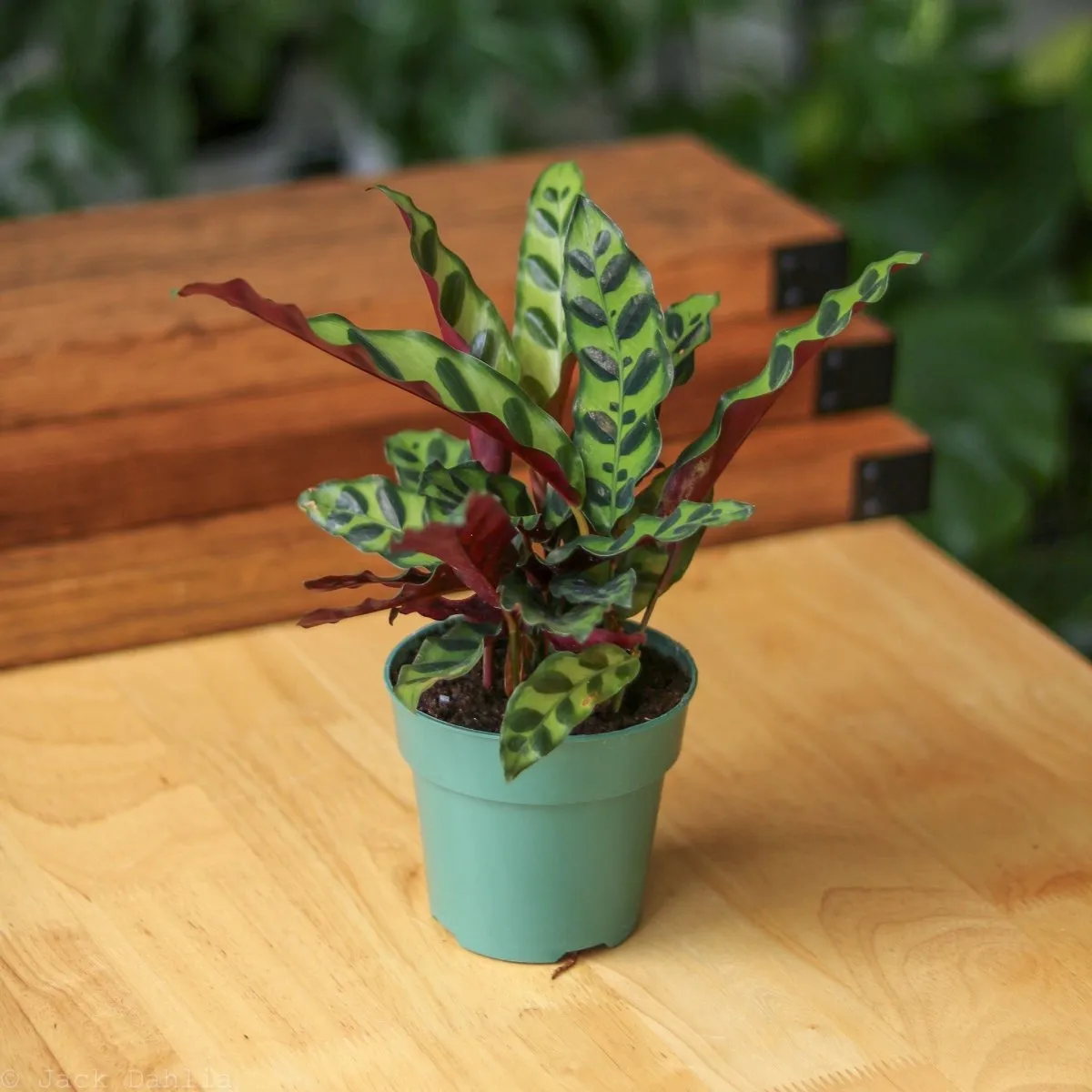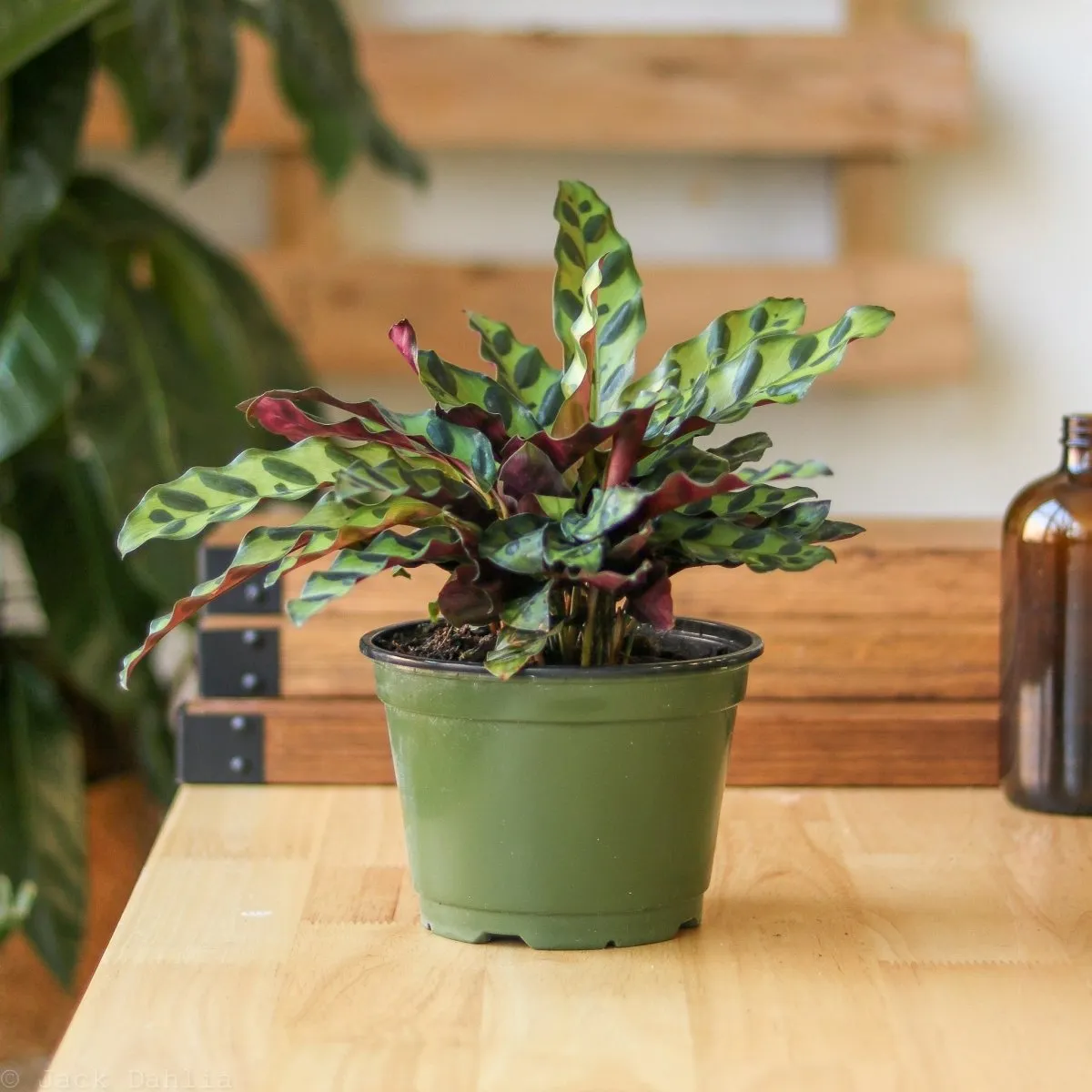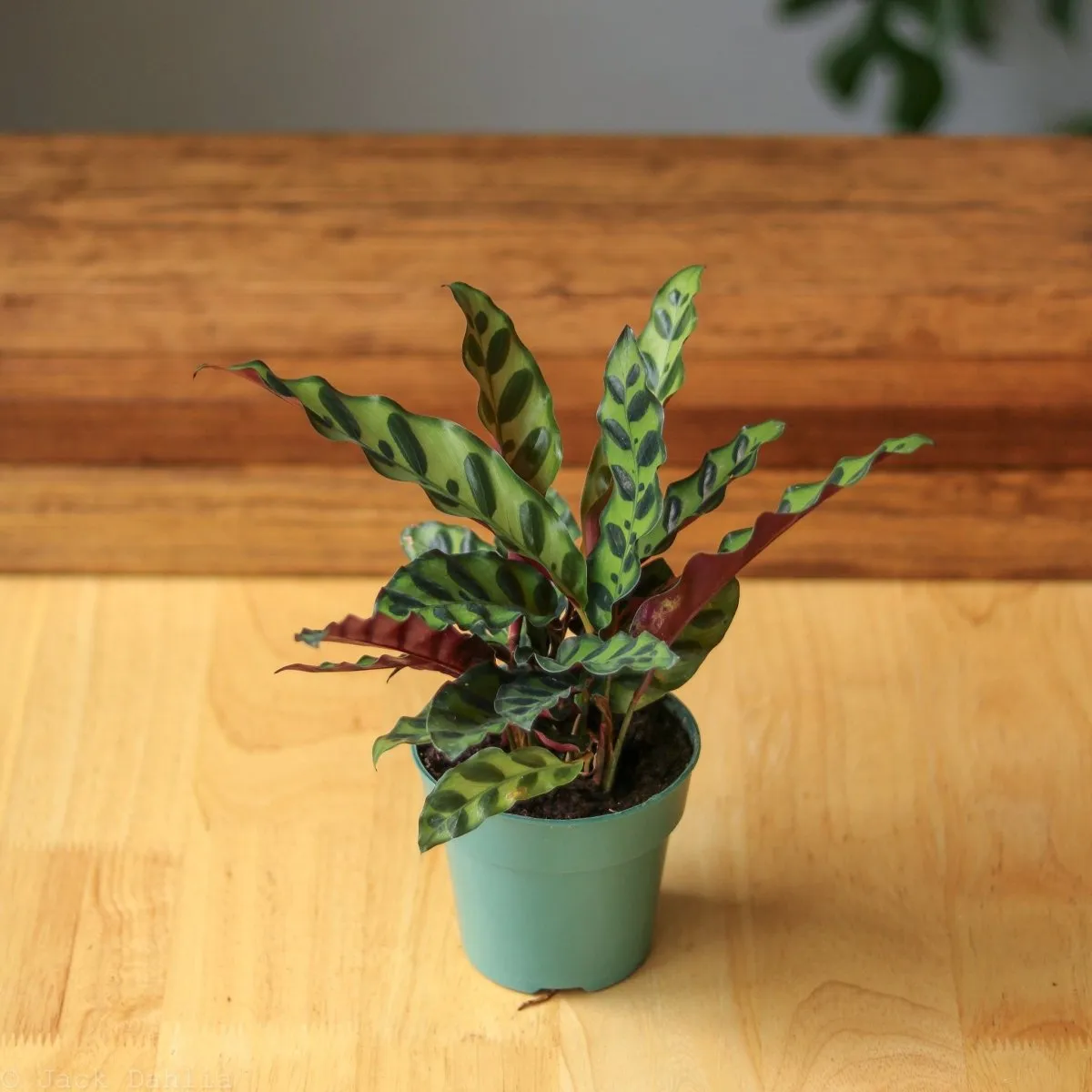Rattlesnake Calathea - Eye-Catching Foliage with Exotic Leaf Patterns
The Rattlesnake Calathea, renowned for its striking foliage and unique patterns, is an exceptional choice for any indoor plant collection. This plant features long, lance-shaped leaves with dark green markings that resemble the intricate patterns of a rattlesnake's skin, adding a touch of the exotic to your home. The underside of the leaves displays a rich purple hue, offering a beautiful contrast that enhances its visual appeal. Ideal for plant enthusiasts seeking to elevate their indoor garden, the Rattlesnake Calathea stands out with its dynamic and eye-catching appearance.
Rattlesnake Calathea Plant Profile:
- Botanical Name: Calathea Lancifolia
- Common Names: Rattlesnake Calathea, Calathea Plant
- Family: Marantaceae
- Native Range: Brazil
Rattlesnake Calathea Care Guide:
- Light Preference: Flourishes in medium to bright, indirect light
- Watering Frequency: Requires high moisture levels; maintain evenly moist, well-drained soil, allowing the surface to slightly dry between watering sessions. Opt for filtered tap water or rainwater to prevent sensitivity to hard water or additives.
- Humidity Preference: Thrives in high humidity environments.
- Temperature: Prefers warmth within the range of 60-85°F.
- Soil Type: Flourishes in regular potting mix or peaty mix with slightly acidic, airy, and well-draining properties.
- Pruning: Trim as needed to eliminate brown or dead foliage.
- Feeding: Fertilize every couple of weeks with a diluted balanced fertilizer during the growing seasons of spring and summer.
- Propagation: Propagate through root division.
- Growth Habit: Exhibits an upright, bushy growth pattern, reaching heights of up to 2 feet; generally benefits from repotting every two years.
- Toxicity: Non-toxic to humans and pets; exercise caution with children and pets around all plants.
Want More In-Depth Calathea Care Tips?
We've put together a comprehensive Calathea care guide chock full of watering tips, fertilization tricks and other troubleshooting advice. Head on over to our Advanced
Fun Fact: The Rattlesnake Calathea’s Leaves Move!
The Rattlesnake Calathea is part of the Marantaceae family, also known as “prayer plants.” This nickname comes from the plant’s nyctinastic movement—its leaves raise and lower in response to the light cycle. During the day, the leaves open wide to soak in indirect light, while at night, they fold upwards, resembling hands in prayer. This fascinating movement adds a dynamic, living quality to your indoor space.
From the Tropics: The History of the Rattlesnake Calathea
Native to the rainforests of Brazil, the Rattlesnake Calathea (Calathea lancifolia) thrives in warm, humid environments. It was first introduced to indoor gardeners for its striking, rattlesnake-like foliage and adaptability to lower light conditions. As part of the Marantaceae family, it shares traits with other prayer plants, making it a popular choice for those seeking a dramatic, yet easy-to-care-for, tropical plant.
Did you know that bottom watering is best for Calathea? Check our our guide on how to bottom water Calathea plants and more on
Looking for houseplants that are safe for your furry friends? Check out our and learn how to create a vibrant, pet-safe space today!

 Cart(
Cart(